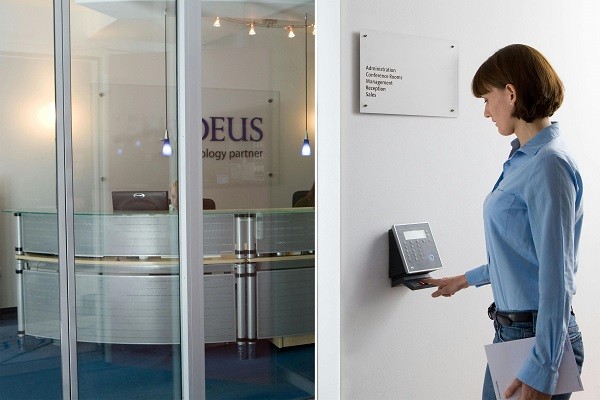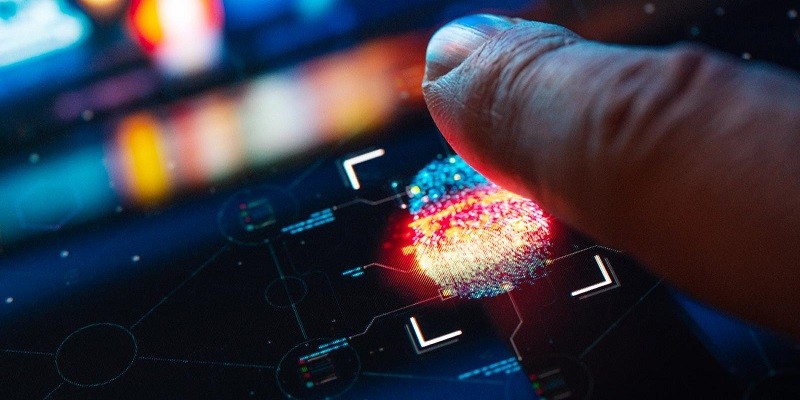Biometric Technology: Enhancing Security And Personalization
Biometric technology enhances security and personalization by using unique biological features for identification and authentication, providing a robust and reliable solution for various applications. Biometric technology offers a highly secure and personalized approach to identification and authentication.
By using unique biological features such as fingerprints, iris patterns, voice recognition, or facial features, this technology ensures that only authorized individuals can gain access to restricted areas or sensitive information. With its high accuracy and low margin for error, biometric technology greatly improves security measures, reducing the risk of identity theft or unauthorized access.
Moreover, this technology enables personalization by tailoring experiences and services to specific individuals, such as personalized greetings or customized settings. With its vast potential across different industries, biometric technology presents a promising future for enhancing security and personalization.
Table of Contents
The Evolution Of Biometric Technology

Early Developments
Early biometric technology focused on basic fingerprint recognition.
In 1991, the first biometric technologies were developed for security applications.
Current State Of Biometric Technology
Biometric technology has significantly advanced to include facial recognition and iris scanning.
Today, biometric systems are utilized for access control, device authentication, and payments.
Applications Of Biometric Technology
Biometric technology offers enhanced security and personalization in various applications, such as access control, time and attendance management, and identity verification. Its use in government facilities, financial institutions, and healthcare settings promises improved security and convenience, ensuring only authorized individuals can access sensitive information and resources.
Biometric technology, with its ability to accurately identify individuals based on unique physical or behavioral traits, is revolutionizing various areas of our lives. From enhancing security and access control to streamlining identity verification processes, biometrics is transforming the way we protect our assets and personalize services. In this article, we will delve into the diverse applications of biometric technology and explore how it is reshaping the future of security and identification.
Security And Access Control
Biometric technology plays a crucial role in reinforcing security and providing access control across a wide range of settings. Whether it is securing sensitive areas in governmental institutions, commercial buildings, or residential complexes, biometrics ensures that only authorized individuals gain entry. By employing technologies such as fingerprint recognition, facial recognition, or iris scanning, organizations can strengthen their security measures, mitigating the risk of unauthorized access and potential breaches.
Implementing biometric access control systems brings numerous advantages. Firstly, it eliminates concerns about lost or stolen access cards or passwords, as biometric data is unique to each individual. Moreover, the speed and efficiency of biometric verification make it an ideal choice for high-traffic areas, reducing waiting times while maintaining a high level of security. By leveraging the power of biometrics, organizations can enhance their overall security infrastructure, safeguard their assets, and protect their employees and customers.
Identity Verification
In today’s digital age, where identity theft and fraudulent activities are on the rise, robust identity verification processes are paramount. Biometric technology provides a reliable and foolproof means of verifying an individual’s identity, ensuring the authenticity of transactions and interactions. By capturing and analyzing biometric data, such as fingerprints, palm prints, or voice patterns, organizations can validate the identity of individuals with utmost precision, thereby reducing the risk of impersonation and fraud.
The applications of biometrics in identity verification are vast. Governments can employ biometrics for border control and passport issuance, ensuring only legitimate travelers cross international borders. Financial institutions can incorporate biometric authentication methods to enhance the security of online banking and payment services, mitigating the risk of account hacking and unauthorized transactions. Biometric identification also finds use in healthcare, where patient records can be securely accessed and updated, preventing medical identity theft and ensuring accurate diagnosis and treatment.
Biometric technology is steadily revolutionizing the way we approach security and identity verification. By leveraging the unique features of individuals’ physical or behavioral traits, biometrics provides an unmatched level of security and personalization. From safeguarding critical assets to streamlining identification processes, the applications of biometric technology are shaping a future where privacy and convenience coexist harmoniously.
Challenges And Concerns
While biometric technology has made significant advancements in enhancing security and personalization, it does come with its fair share of challenges and concerns. It is essential to address these issues to ensure the widespread adoption and trust in this technology. The challenges mainly revolve around privacy, reliability, and accuracy.
Privacy Issues
One of the primary concerns with biometric technology is the protection of personal data. Since biometric characteristics are unique to individuals, there is a risk of unauthorized access and misuse of this sensitive information. Organizations implementing biometric systems must have robust security measures in place to safeguard biometric data from potential hacking or breaches.
Reliability And Accuracy
Another challenge of biometric technology is ensuring its reliability and accuracy. While biometrics can provide a secure and convenient identification method, the effectiveness of the technology relies heavily on the quality of data capture and storage mechanisms. Factors such as environmental conditions, an individual’s age, injuries, or changes in physical appearance can impact the accuracy of biometric systems. Therefore, it is crucial to regularly maintain and update the technology to ensure reliable performance.
Future Trends
Biometric technology is set to revolutionize security and personalization, integrating unique biological features for authentication. This trend enhances data protection and user experiences across industries, from smartphones to finance, promising a secure and personalized future.
Biometric technology is constantly evolving to meet the demands of stricter security measures and personalized user experiences . The future of biometrics holds exciting possibilities with Advancements in Biometric Sensors and Integration with AI and IoT paving the way for unprecedented innovation.
Advancements In Biometric Sensors
The next wave of biometric sensors will be smaller and more accurate , providing enhanced security features . These sensors will be able to capture unique biometric data points for each individual, ensuring a higher level of authentication .
Integration With Ai And Iot
The combination of biometric technology with artificial intelligence and the Internet of Things will revolutionize security and personalization. AI algorithms will analyze biometric data in real time, allowing for instantaneous responses and adaptive security measures. IoT devices will integrate seamlessly with biometric systems, creating a connected ecosystem of secure interactions.
The future of biometric technology is bright, offering a blend of enhanced security features and personalized user experiences through advancements in sensor technology and integration with AI and IoT .
Frequently Asked Questions
What Is Biometric Technology And Its Role In Security?
Biometric technology uses unique physical or behavioral traits for authentication, significantly enhancing security.
How Does Biometric Technology Improve Personalization?
By capturing individual characteristics like fingerprints or facial features, biometric technology enables highly personalized interactions.
What Are The Benefits Of Using Biometric Technology?
Biometric technology offers enhanced security, greater convenience, and customized experiences, improving overall user satisfaction.
Is Biometric Technology Reliable For Identity Verification?
Yes, biometric technology offers a highly reliable and secure method for verifying and confirming individuals’ identities.
What Are The Potential Future Applications Of Biometric Technology?
Potential future applications include healthcare, finance, and travel sectors, as well as enhanced user experiences in various industries.
Conclusion
Incorporating biometric technology enhances security measures and personalizes user experiences. By utilizing unique physiological characteristics, such as fingerprints or facial features, organizations can enhance data protection while offering a seamless user experience. Embracing biometrics is a step towards a more secure and personalized future.

